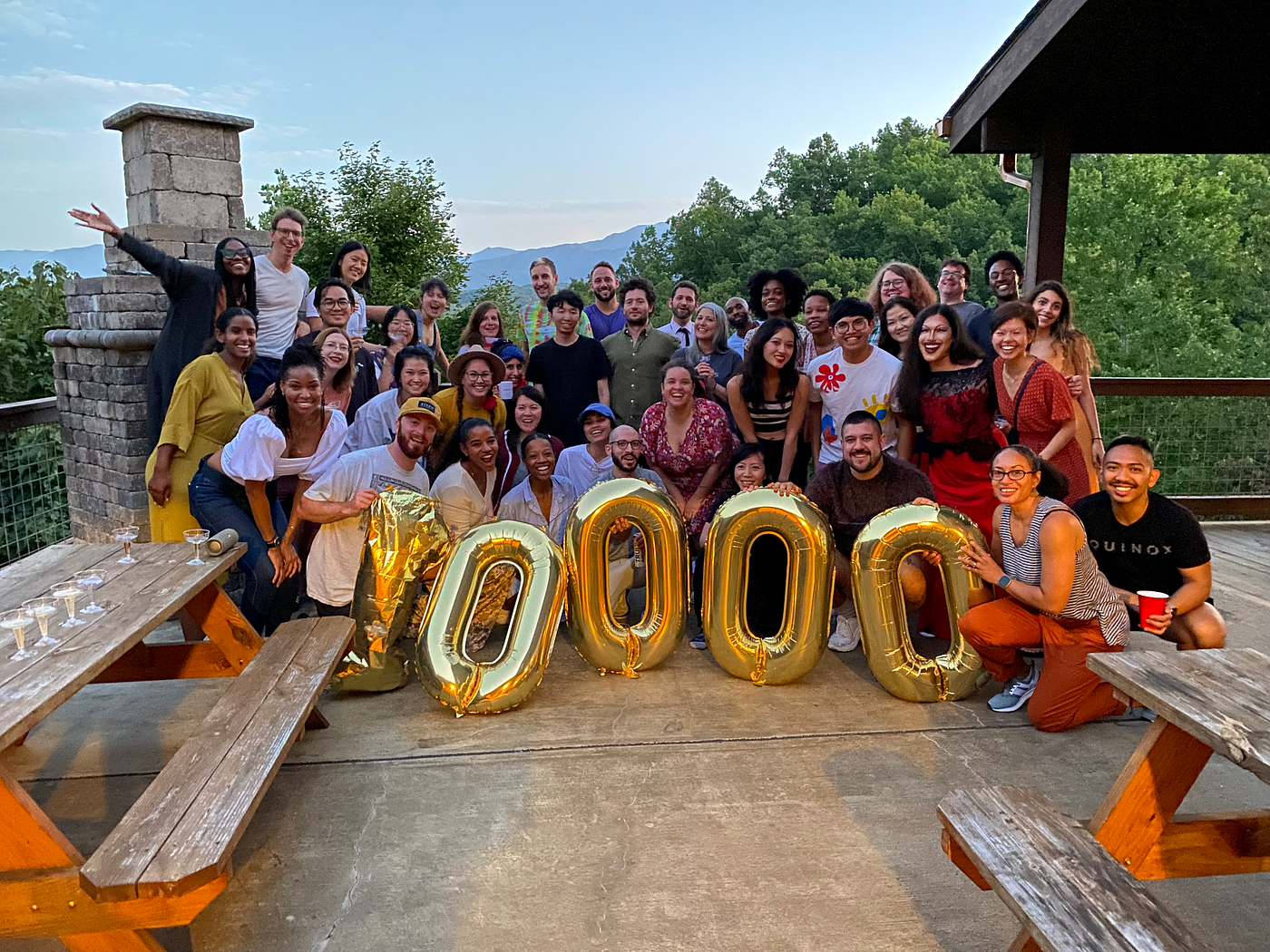The Challenge
When TechStorage Inc.* found Praxis Labs, they were looking for a DEI learning solution that would help foster more inclusive teams, boost confidence in acting as an advocate for equity and inclusion, and promote inclusive interviews.
TechStorage Inc. had made significant strides toward creating a culture that prioritizes DEI prior to partnering with Praxis Labs. Many of their employees had already benefited from DEI and unconscious bias training. Despite their team’s alignment on the value of DEI training, they struggled to translate learning into informed, measurable action.
The Solution
TechStorage Inc. recognized a need for a training solution that would attract and engage learners, provide a skills-based and action-oriented approach to training, and provide actionable data and insights to drive change. They wanted to move beyond “one-and-done” training approaches, and instead, sought to embed a solution that could spark sustained behavior change and help create an equitable organization.
Praxis Labs offers curated learning journeys, including immersive experiences, continuous learning resources, and social learning features. This comprehensive approach enables learners to practice navigating real-world workplace scenarios. Throughout the immersive experiences, learners are faced with instances of bias and inequity and have to make choices that impact scenario outcomes. This real-time feedback builds an automatic response that changes how learners react in real life.
Our team provided TechStorage Inc. with a learning journey intentionally designed to meet the needs of its employees. We onboarded over 4,000 learners into our Active Allyship journey where learners completed courses on Inclusive Hiring, Mentorship & Sponsorship, and Leadership & Career Growth.
“The innovative modality draws learners in and then the content imprints upon them a greater sense of empathy and ability to take action. It’s a game changer when it comes to DEI learning.”
Program Administrator
Throughout Active Allyship, learners build core skills like collaboration, navigating difficult conversations, and cross-cultural communication. As learners progress throughout the immersive experiences, they encounter opportunities to advocate for themselves or on behalf of their colleagues.
This practice-based approach to skill-building doesn’t just educate learners, it gives them the confidence and frameworks needed to translate the learning into informed action. That’s why more than 72% of TechStorage Inc. learners say that Praxis Labs training is more impactful than other DEI trainings, and why their learners have a 75% completion rate (nearly 4x the industry average).
“The innovative modality draws learners in and then the content imprints upon them a greater sense of empathy and ability to take action,” a Program Administrator at TechStorage Inc. explains. “It’s a game changer when it comes to DEI learning.”
The Results
One of the biggest challenges DEI and L&D leaders face is tracking and measuring the success of their training programs.
With Praxis Labs’ Pivotal Insights, program administrators have the data they need to see how learners progress through their learning journeys. They also gain access to rich insights that measure behavior change and business impact.
By the end of the program, TechStorage Inc. saw significant improvements across key skills and competencies.
- 78% of learners could better identify bias,
- 80% of learners built empathy,
- 77% of learners felt more confident taking informed action, and
- Learners made nearly 19,000 commitments for equity and inclusion.
Learners’ experiences help bring the impact to life. One learner shares, “as a bystander in a difficult situation, it is important to take action. This experience helped me to gain confidence during difficult situations.”
In particular, TechStorage Inc. has seen measurable change across hiring practices, team management, and overall employee experience and company sentiment.
Enabling more inclusive interviews
Praxis Labs’ course on Inclusive Hiring follows Carlos & Christina. Carlos is a Latinx man applying for a management position as a software engineer who experiences race-based microaggressions during the interview process. In contrast, Christina is an Asian-American woman on the talent acquisition team who is in a position to address the inequities.
Learners first experience the interview as Carlos. Then, as Christina, learners witness how the all-white interview panel conducts interviews differently across several candidates. The differential treatment highlights the race-based microaggressions that Carlos encounters. Later on in their experience, as Christina, learners have the opportunity to give the hiring manager feedback.
For some learners at TechStorage Inc, Carlos’ story inspired them to think critically about their company’s hiring process. “It makes me ask what opportunities I have, and my organization has, to identify and ameliorate obstacles to success and advancement for potential employees before they show up as candidates,” one learner shares.
For others, it helped validate and give a name to their lived experiences. “I had a similar experience when interviewing for a job myself,” one learner reflects. “I think this highlights the inappropriateness of biased behaviors and helps hiring managers take the interview process very seriously.”
Praxis Labs training offers frameworks that teach learners how to conduct equitable interviews. This research-backed approach gives hiring managers and recruiters the information and confidence they need to embed objective guardrails into their hiring process.
Encouraging active listening and inclusive team norms
Praxis Labs’ learning sparked changes in learners’ daily lives that informed how they showed up for their colleagues.
One learner reflected on how setting norms improved interviews and led to more collaborative discussions, “I still think about the disrespect of checking email during an interview. I have implemented laptops down since and the improved conversations have been a rewarding result.”
“I am much more conscious about making sure every voice is heard during team meetings.”
Praxis Labs Learner
After experiencing our Mentorship & Sponsorship course, in which the protagonist Kia is interrupted several times by a colleague during a group conversation, one learner explained how he became more mindful during meetings, “I am much more conscious about making sure every voice is heard during team meetings…[for example, if someone is] saying anything that might be biased or unconsciously excluding someone from the conversation.”
Feeling heard and valued is not just an interpersonal problem, it’s a business one as well. Inclusive workplace cultures that prioritize belonging see greater returns on productivity, collaboration, and innovation.
Demonstrating commitment to DEI
Praxis Labs training helped TechStorage Inc. employees see that their company is committed to building a diverse, equitable, and inclusive workplace. When organizations prioritize DEI, they signal to their employees that they care about them as professionals and as people. This includes creating space for follow-up conversations and real dialogue about changes that need to be made.
As a core pillar of our learning design model, Praxis Labs pairs on-demand immersive training with research-backed group discussion guides that are created by our internal experts in facilitation and social psychology. This form of social learning provides learners with opportunities to build community, practice skills, and reflect on their experiences in a safe space.
“More conversations around DEI are happening and people seem to be genuinely excited to keep the conversations and actions going,” one learner shares. “It’s evident that it’s important to the organization, which is awesome.”
On the aggregate level, more than half of learners expressed that they were more likely to stay at their company because of Praxis Labs training.
Conclusion: Building DEI skills for long-term business impact
By now, it’s well known that when companies prioritize their people, they see big returns in value for the overall business. Retaining your employees can save companies trillions, especially during turbulent times
Yet, many companies struggle to find a long-term, holistic solution that drives impact at scale. As a result, they’re missing out on key opportunities to foster more collaborative, resilient, and innovative workplaces where people want to stay.
Immersive learning is the next frontier of DEI training and is helping companies make workplaces more human and engaging. It works by building core skills and the confidence needed to apply them.
Even eight months after completing the training program, TechStorage Inc. is seeing sustained results.
- More than 75% of learners continue to take regular, informed action to create a more inclusive organization,
- 75% shifted their actions, behaviors, and mindsets, and
- Nearly 50% of learners notice changes in their organization as a whole.
As one learner puts it: “[Praxis Labs trainings] made me rethink how I would react in certain situations. Normally I would take a non-confrontational approach to uncomfortable situations, but I’ve seen how stepping forward and taking action can change the outcome for the better.”
*TechStorage Inc. is a fictitious company name assigned to one of our clients.
Curious about how you can drive lasting impact for DEI at your company? Chat with a member of our team.



